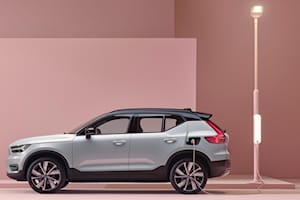Poor charging infrastructure could lead to slowed electric vehicle adoption.
One of the negatives associated with electric vehicle ownership (aside from the cost of entry) is charging. Lengthy waiting times aside, EV drivers are faced with a charging infrastructure that's not up to scratch. Ford's CEO Jim Farley has already admitted to this, noting the company's charging network isn't as good as it can be.
"It's not really helpful that it's the biggest if half the chargers don't work ... or if you show up, and you need a fast charger, and it's not a fast charger - that's not going to work," he said. This is especially true now, as companies are encouraging people to make the switch to electric vehicles.
A new report seems to support this. The study looked at 657 charging connectors at 181 public fast chargers in the San Fransisco Bay area, and the results are startling - 23% of them were not working.
One of the authors of the paper is David Rempel, a Berkeley professor who told Automotive News that chargers must work reliably. "Functionality needs to be at a high level for there to be large-scale EV adoption...do you really expect EV drivers to go to one charger, call the 1-800 number because it's not working, and then spend 45 minutes going from one charger to the next - and be happy with that? No."
Of the several issues raised in the conclusion, one focuses on the problems which could stem from non-functioning chargers. Not only does it have the potential to slow down the adoption of electric vehicles, but it also poses an "important equity issue."
EV owners who reside in an alternative living situation may find it difficult to install a home-charging system and may rely on public chargers. The study also notes it could have a "significant impact on drivers on road trips."
While frustrating for many EV owners, the good news is that several automakers are making progress on innovative charging solutions. Volvo, for example, has rolled out a unique initiative. A pair of Volvo XC40 Recharge taxis are serving as guinea pigs while the company experiments with wireless EV charging.
Rempel added the charging infrastructure needs to work flawlessly so that "people [don't] point...and say 'I'll wait to move to an EV until the system is better...we shouldn't be dumping a lot of money into infrastructure that leads to a poor system."
While Tesla has already opened its extensive charging network to other EVs in Europe, the decision to do so in the United States has been a long time coming. Recently, however, Elon Musk said the company is looking into opening the Supercharger network up to other EV makes and models, which would certainly make things easier for owners in the states.









Join The Discussion